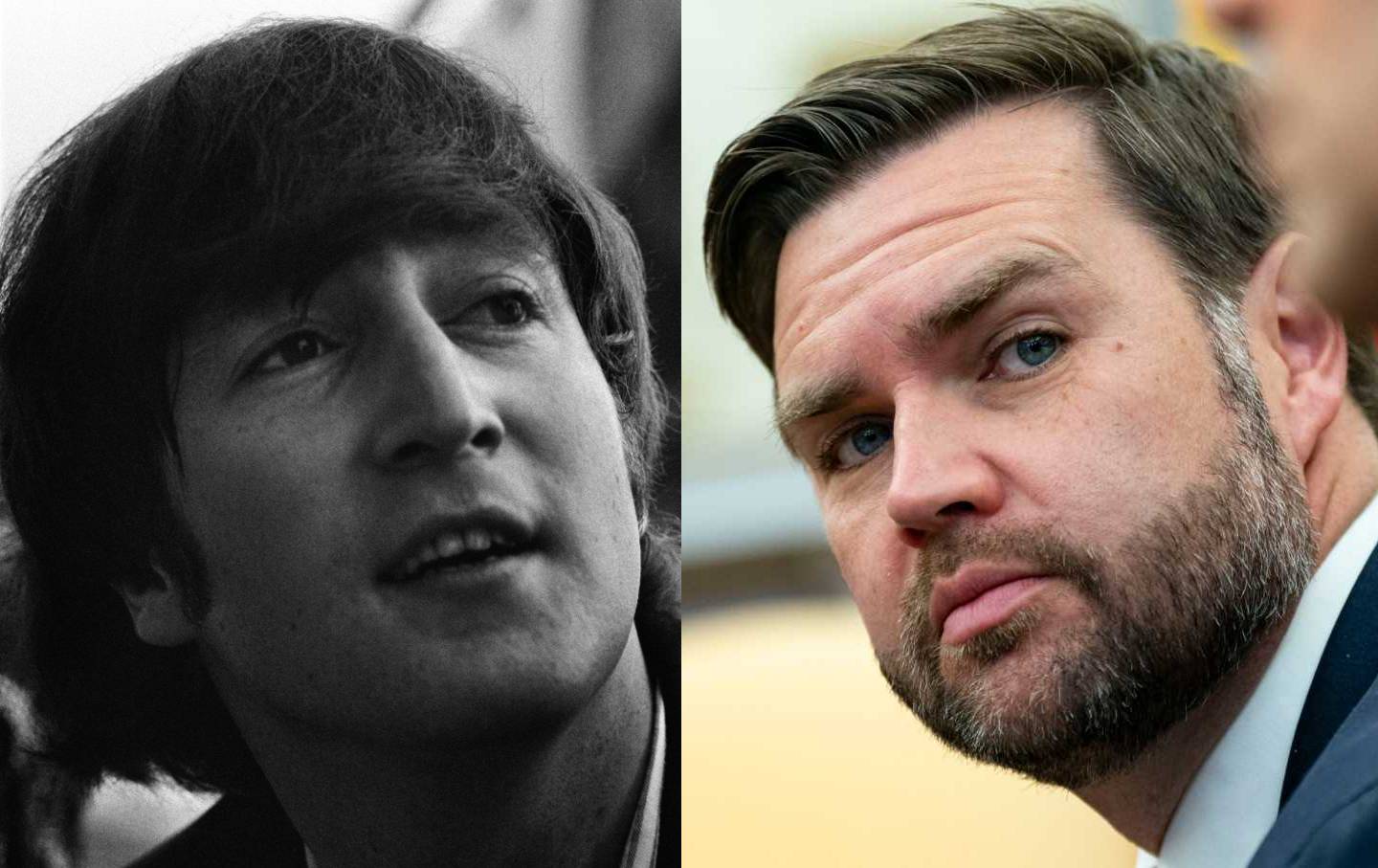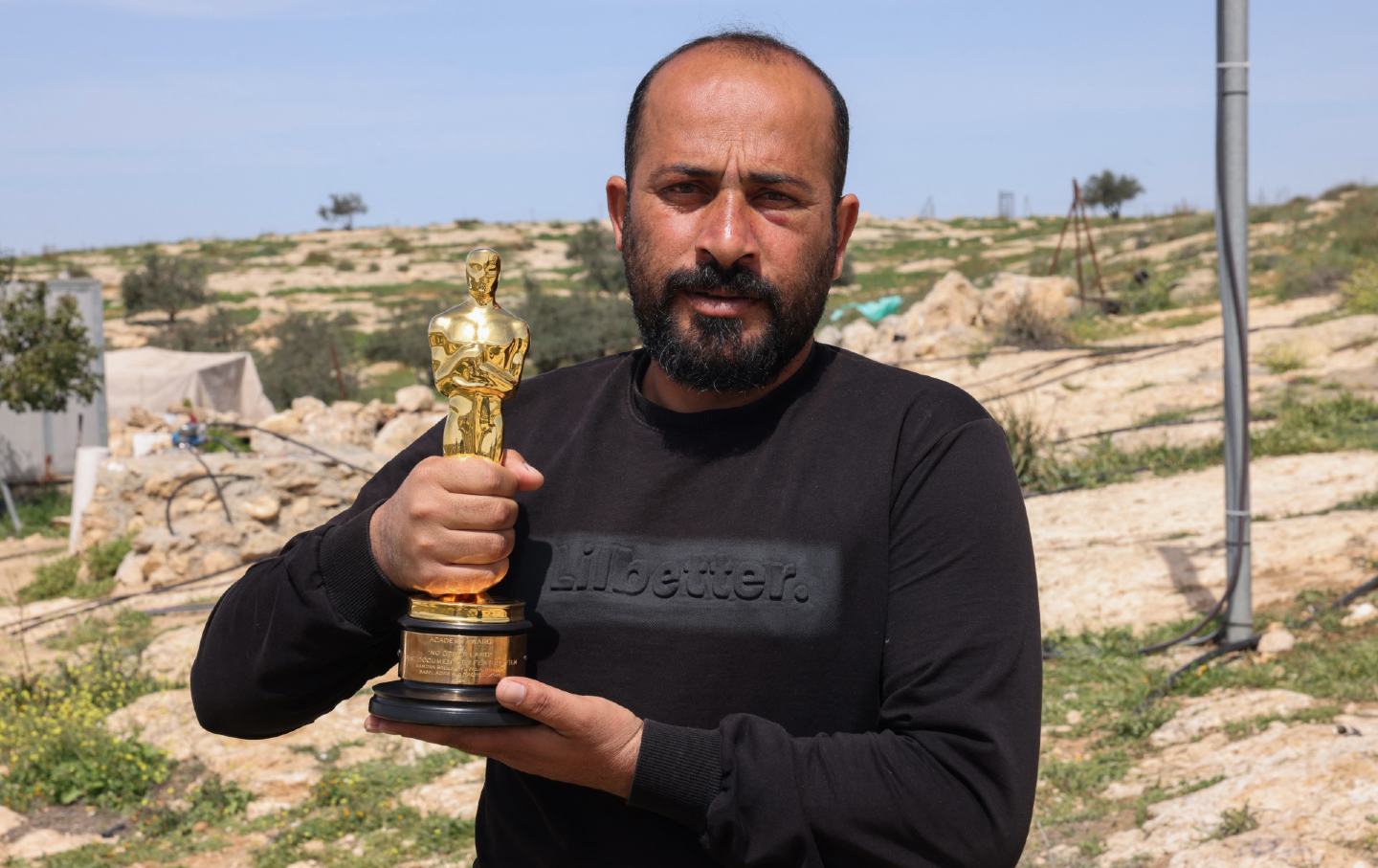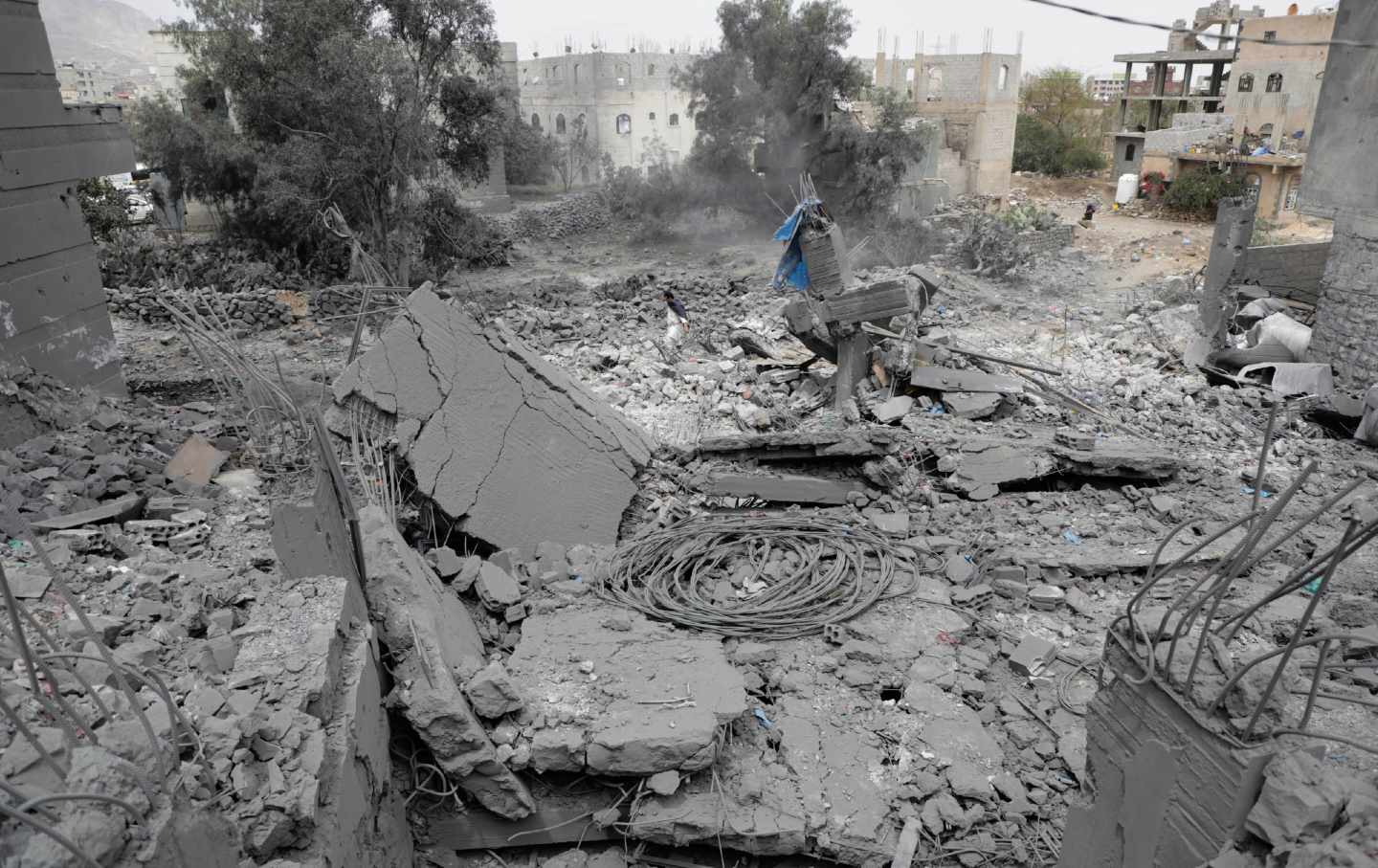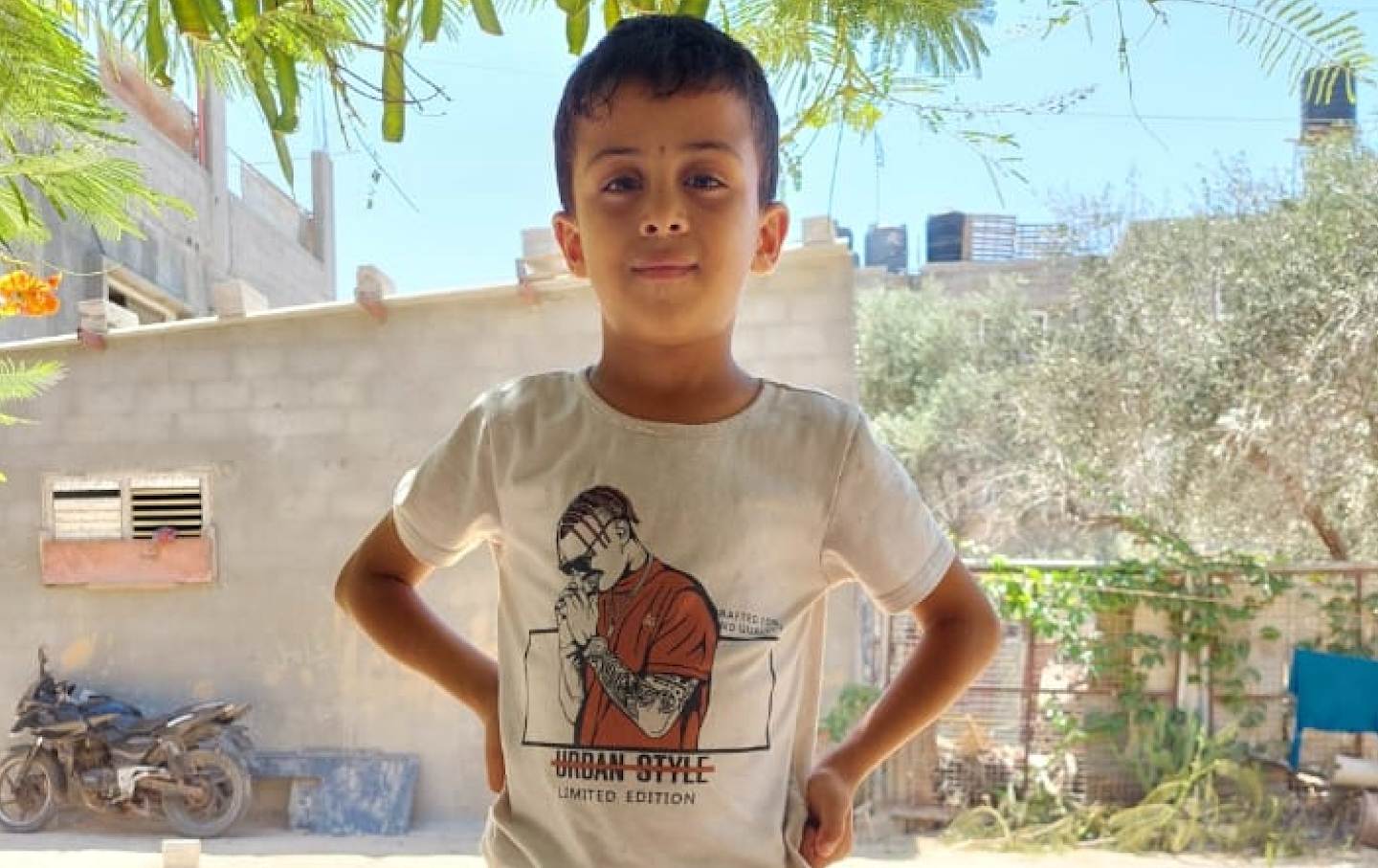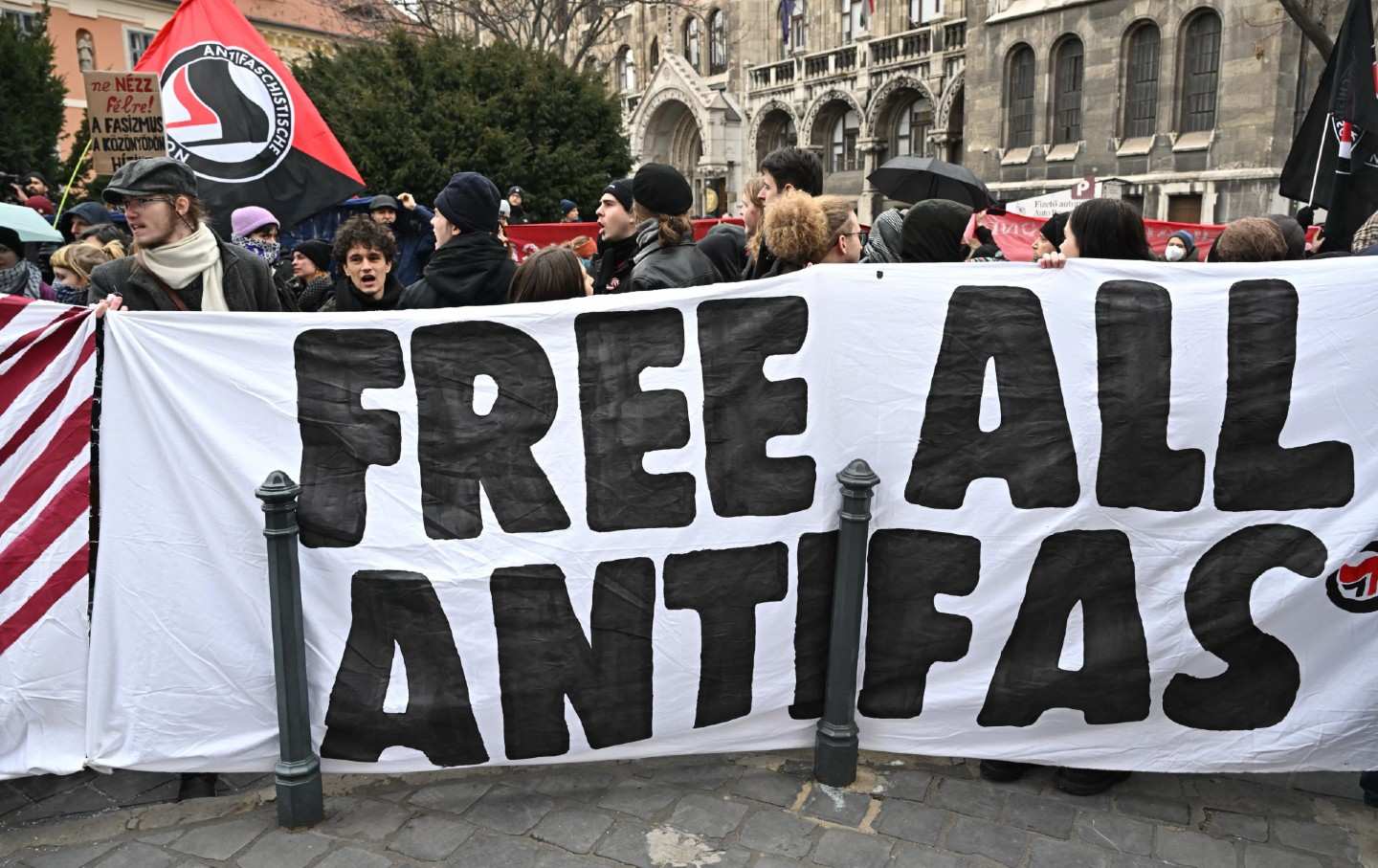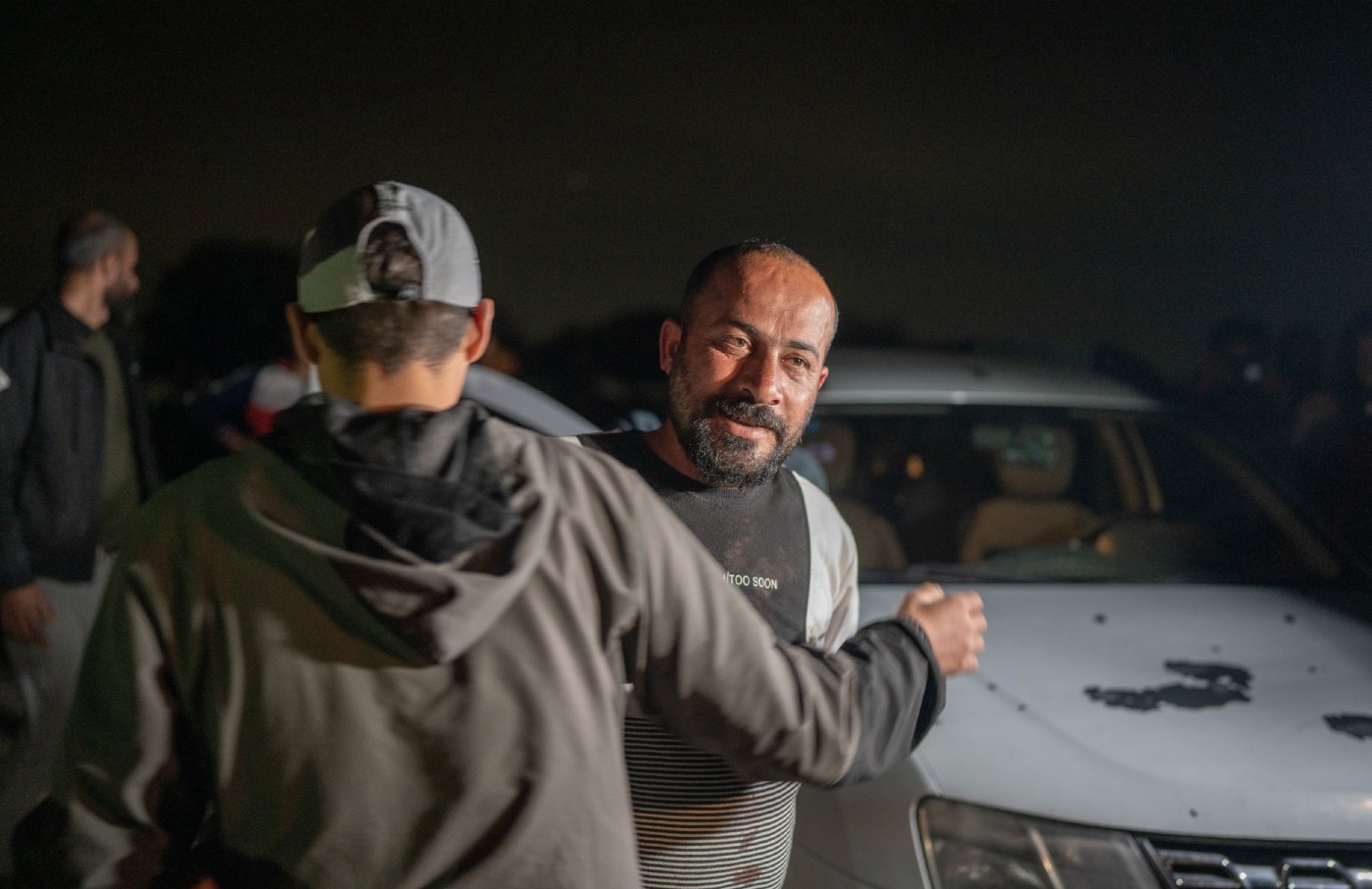With Trump in the White House, Can Mexico Avoid Making the Drug War Even Bloodier?
Mexico’s new president, Claudia Sheinbaum, has a plan to combat drug trafficking, but she has a problem: Donald Trump.
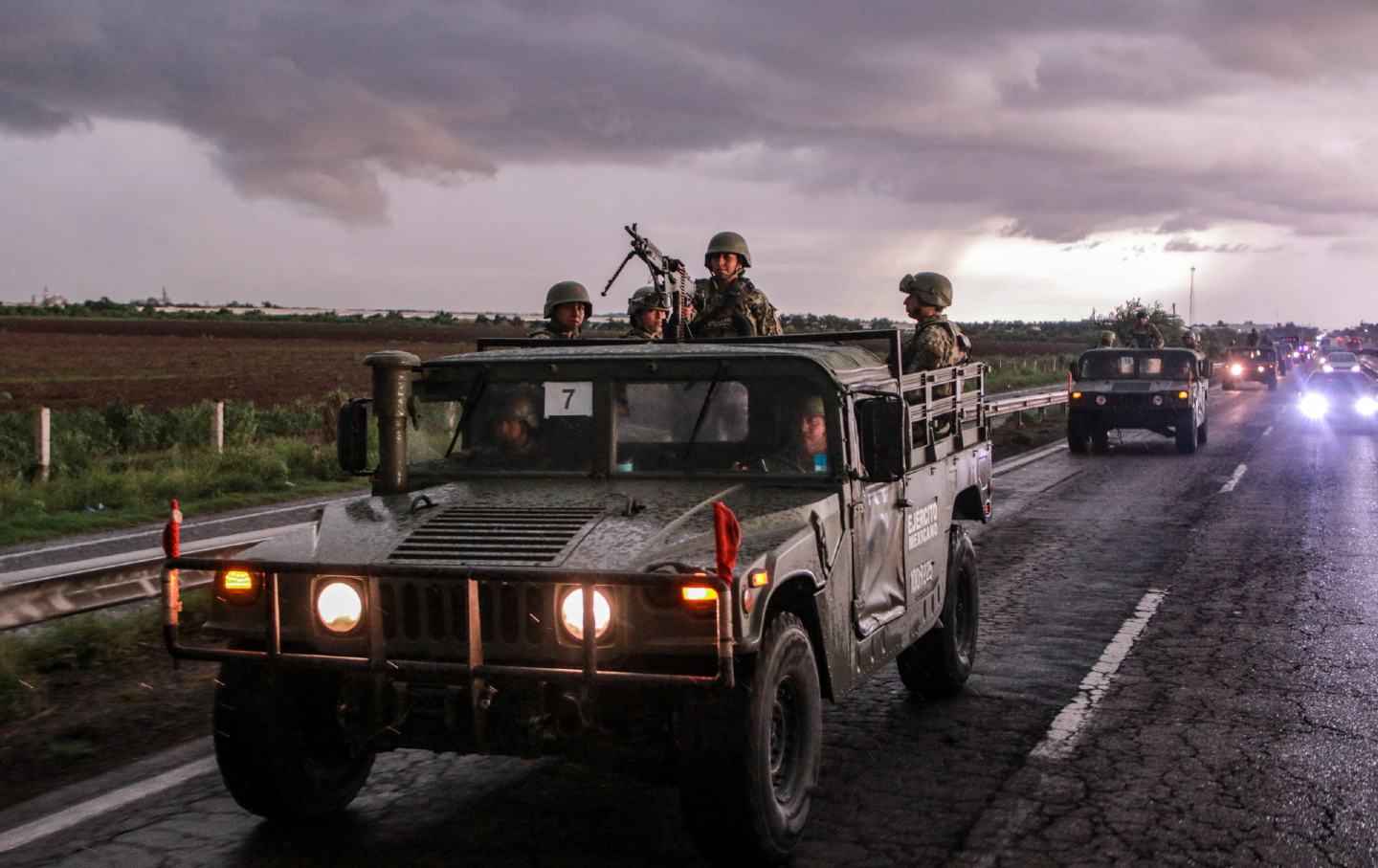
Mexican army soldiers aboard military vehicles patrol a highway as part of a military operation to reinforce security following a wave of violence in the city of Culiacan, Sinaloa State, Mexico, on August 19, 2024.
(Ivan Medina / AFP via Getty Images)
Last month, Mexico’s newly inaugurated president, Claudia Sheinbaum, unveiled her security strategy to combat organized crime and drug trafficking. The four planks of her proposal include: (1) addressing root causes of crime by reducing poverty and inequality, (2) professionalizing the 133,000-member National Guard, (3) strengthening intelligence and investigation capabilities, and (4) increasing coordination between state and national authorities. The plan is both a continuation and welcome update to the much-criticized policies of former President Andrés Manuel López Obrador, known as AMLO.
With Donald Trump set to return to the White House in 2025, Sheinbaum’s plan carries profound implications for Mexico and the United States. Decades of drug enforcement on both sides of the border have failed to stem the flow of narcotics or cartel violence, with Washington and Mexico City increasingly at odds over conflicting security policies. Sheinbaum will need to balance the demands of a hostile Trump administration with the unconventional security approach inherited from her predecessor.
Following the July arrest of cartel kingpin Luis “El Mayo” Zambada, cartel infighting in Sinaloa state has led to more than 200 casualties. Zambada’s arrest in El Paso, Texas, was reportedly the product of covert dealings between US Drug Enforcement Administration (DEA) agents and Joaquin Guzmán López—a son of El Chapo. The DEA’s reported failure to consult with its counterparts in Mexico reflects a clear frustration with—and distrust of—Mexico’s security approach. Unsurprisingly, AMLO accused the US of sharing responsibility for the ongoing violence prior to his leaving office.
In the view of many in Washington, Mexico needs to showcase “results” in the fight against drug trafficking. In most cases, this is measured through “high impact” metrics such as the arrest of cartel kingpins—known as the kingpin strategy—and drug seizures. The Mexican government, however, believes the approach of going after cartel bosses is not only unable to slow the flow of drugs but also produces more violence.
In 2007, the conservative administration of Felipe Calderón (2006–12) launched a militarized crackdown targeting Mexico’s most violent cartels. On paper, the multiyear operation was a resounding success. By the time Calderon left office, 25 of Mexico’s 37 most-wanted drug lords were dead or behind bars,. with prominent cartels such as the Zetas and Beltrán-Leyva organization dismantled or severely weakened.
At the time, both the Bush and Obama administrations showered their Mexican counterparts with praise and almost $2 billion in funding via the Merida Initiative. Yet—similar to what has occurred in Sinaloa in recent months—subsequent inter- and intra-cartel infighting caused homicides to triple to 24 per 100,000 by 2010. What’s more, the net flow of illicit drugs to the US continued to climb. After 2018, AMLO retained and even deepened the role of the military in fighting crime. By 2022, the number of troops deployed for internal security rose to 200,000 with the administration arguing that deployments would help deter outbreaks in violence. At the same time, security forces would place less emphasis on conventional metrics such as arrests and drug seizures. Between 2018 and 2022, arrests and cocaine seizures by the National Guard fell from almost 22,000 detentions and 2,500 kilos seized to around 2,800 detentions and 1,300 kilos.
A particularly emblematic case of the Morena approach was the arrests of another son of El Chapo, Ovidio Guzmán. In 2019, the National Guard arrested Guzmán in the Sinaloa capital of Culiacán. Amid the chaos, cartel gunmen threatened mass civilian deaths, including an attack on the relatives of local military personnel. To prevent more bloodshed, AMLO ordered Guzmán’s release. Humiliating as this may have been, the president’s logic was sound. Moreover, security forces risked far less bloodshed to both civilians and military personnel during their 2023 recapture of Guzmán. This was in large part thanks to a months-long joint operation between US and Mexican forces that prioritized intelligence gathering over brute force.
Nonetheless, critics argue that flooding cartel areas with troops while deprioritizing arrests of their leaders has promoted impunity and allowed organized crime to expand over parts of the country. At minimum, it’s fair to say that the strategy has its own set of costs. Abuses by the military against rural peasants and irregular migrants remain tragically common. Hours after Sheinbaum took office, security forces shot and killed six non-Mexican migrants that were mistaken for criminals in the state of Chiapas.
In the eyes of many Republicans in the US, intervention south of the border is now more than justified. In July, Fox News’ Jessie Watters asked Trump whether he was still open to military action inside of Mexico. Trump responded, “Mexico’s gonna have to straighten it out really fast, or the answer is absolutely.” The sad reality is that to deter a hostile Trump administration, Mexico will need to appease Washington to one degree or another.
President Sheinbaum would do well to take after fellow leftist Gustavo Petro, the president of Colombia, who has also reoriented the country’s security policy. Under Petro, Colombia has similarly moved the focus from arresting kingpins to reorienting the economic foundations of the drug trade. Petro, for instance, has championed land reform and illicit crop substitution in conflict-ridden areas. And, unlike their Mexican counterparts, Colombian security forces seize large volumes of drugs.
While Petro’s efforts toward “total peace” have elicited discontent in Washington, the administration’s record seizures of cocaine—particularly via maritime routes—has made it hard to argue against Colombia’s anti-drug bona fides. Were Mexico to adopt a more Colombian approach, it would be better poised to disrupt cartel routes and offer Washington presentable results in the War on Drugs.
Indeed, there is reason to believe that Sheinbaum may be looking to follow Petro’s lead. Much of the Mexican National Guard’s inability to seize drugs stems from the force’s limited investigative experience. The second, third, and fourth planks of the president’s security plan aim to address these deficiencies through better training and increased coordination between the National Guard and police forces. Sheinbaum’s success as Mexico City mayor in boosting the intelligence and investigative capabilities of municipal police also bodes well for the creation of a National Intelligence System and a subsecretary of intelligence and police investigation. A broader police overhaul may also be worth considering.
Popular
“swipe left below to view more authors”Swipe →In Mexico, as in the United States, police forces serve at the municipal and state level, with the National Guard replacing the Federales in 2019. But because police forces answer to different federal authorities such as governors and local mayors, they often operate at cross purposes and/or are coopted by organized crime. Here, the example of Colombia’s unified National Police may be another model worth considering that could help make police forces more efficient.
Washington, for its part, would benefit from taking a more holistic approach to the now 40-year War on Drugs. It is a mistake to believe—as many seem to—that the level of violence in parts of Mexico correlates to the number of drugs trafficked into the United States. In the decades before Calderón’s crackdown, drug trafficking in Mexico was comparatively pacific—and at times tolerated by elements within both the Mexican and US security states.
The unspoken truth known to virtually all parties in the drug war is that the net flow of drugs is unlikely to change so long as consumption in the US continues to grow. This doesn’t mean that dangerous criminals such as El Mayo should be allowed to operate with impunity. On the contrary, impunity broadly begets crime and increased violence. But given the downsides of the kingpin strategy, a more strategic approach to dismantling drug-trafficking organizations merits greater discussion in foreign policy and security circles. Targeting operational nodes of supply and distribution has been shown to be a more effective means of combating cartels. US authorities could also do more to crack down on money laundering by prominent financial institutions as well as illicit weapons sales to traffickers.
The path forward for the United States and Mexico is fraught. The success of a reformed security strategy in Mexico will be vital to Sheinbaum’s efforts to appease an unruly Trump administration. Complementary reforms north of the border would similarly go a long way toward curtailing the strength of organized crime in Mexico. With any luck, both Washington and Mexico City will find the grounds to collaborate toward shared interests on security. The alternative is likely to only further empower traffickers—with devastating consequences on both sides of the Rio Grande.
Support independent journalism that exposes oligarchs and profiteers
Donald Trump’s cruel and chaotic second term is just getting started. In his first month back in office, Trump and his lackey Elon Musk (or is it the other way around?) have proven that nothing is safe from sacrifice at the altar of unchecked power and riches.
Only robust independent journalism can cut through the noise and offer clear-eyed reporting and analysis based on principle and conscience. That’s what The Nation has done for 160 years and that’s what we’re doing now.
Our independent journalism doesn’t allow injustice to go unnoticed or unchallenged—nor will we abandon hope for a better world. Our writers, editors, and fact-checkers are working relentlessly to keep you informed and empowered when so much of the media fails to do so out of credulity, fear, or fealty.
The Nation has seen unprecedented times before. We draw strength and guidance from our history of principled progressive journalism in times of crisis, and we are committed to continuing this legacy today.
We’re aiming to raise $25,000 during our Spring Fundraising Campaign to ensure that we have the resources to expose the oligarchs and profiteers attempting to loot our republic. Stand for bold independent journalism and donate to support The Nation today.
Onward,
Katrina vanden Heuvel
Editorial Director and Publisher, The Nation

